An overview of the role of ICT infrastructures as well as smart mobility, economy, environment, living, people and governance as important drivers of modern urban growth
by Herman van Bolhuis, World Smart Capital Initiative
Today, the scale and complexity of cities are unprecedented, and so should be our tools for understanding them. In the last 50 years the world population has grown exponentially at an avarage rate of 1.2% per year, accompagnied by an urban population explosion. For the first time in the history of mankind, more people lived in cities than in rural areas during 2007. In 2050, the rate will be 65%. Without an infrastructure enhanced by digital technology it will be very hard to provide the existing cities and the world’s newly urbanised population with enough food, transport, electricity and water. Urban performance will depend not only on the city’s endowment of hard infrastructure (‘physical capital’), but also, and increasingly so, on the availability and quality of knowledge communication and social infrastructure (‘intellectual and social capital’).
Smart cities
The concept of the smart city as the next stage in the process of urbanisation is the focus on the role of ICT infrastructure, but much research has also been carried out on the role of human capital/education, social and relational capital and environmental interest as important drivers of urban growth. The concept of ‘smart’ seems to rotate around six main arenas: smart mobility, smart economy, a smart environment, smart living, smart people and smart governance.
A smart city seems to pioneer innovative measures to achieve a city with low carbon use and high quality of life, high economic value, well networked technical energy systems and maintain low fossil fuel use, which all aims at environmental targets within a long-term planning. It does this through the integration of ‘smart’ technologies, which act as the cornerstone of an effective and efficient future. Smart city research and literature seem putting emphasis on embedded systems, sensors and interactive media, while relying on collective intelligence/collaborative intelligence, innovation system, and web-based collaborative spaces.
A network of sensors
The concept of smart systems (‘internet of things’ imagines a future in which the virtual and the real world would be connected. Anything and anyone-machines, devices, everyday things and particularly humans-can become a sensor, gathering and transmitting information about the real world.
One day, a network of sensors will cover the world and deliver data to anybody who needs them. Machines and devices that populate the physical environment already come with some data-generating digital technology. Most important, however, humans themselves have turned out to be excellent sensors.
Technology and freedom
There is the common understanding that smart systems will improve efficiency and could help solve many environmental problems. Yet these systems could seriously influence and undermine people’s freedom.
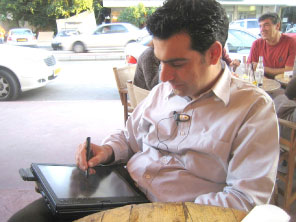 Top of the list are loss of privacy and government surveillance. Internet users have only recently begun to realise that every single thing they do online leaves a digital trace. With smart systems the same thing will increasingly apply to the offline world. Machines with smart systems could be hacked. And people could come to rely too much on smart systems. It will take a lot of effort to cope with the huge amount of data produced by machines.
Top of the list are loss of privacy and government surveillance. Internet users have only recently begun to realise that every single thing they do online leaves a digital trace. With smart systems the same thing will increasingly apply to the offline world. Machines with smart systems could be hacked. And people could come to rely too much on smart systems. It will take a lot of effort to cope with the huge amount of data produced by machines.
It is up to civic leaders to listen to citizens and together frame their own smart city vision. Every community faces a unique set of circumstances, as well as resources to address them. Some local experiments will morph into ‘best practices’, data sets, computer models and visualisations that can be reused elsewhere.
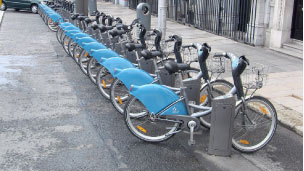 Findings show that patterns of city development are similar across nations with different levels of deployment, technology and wealth – because the same basic social and economic processes are at work. Detailed data covering 40 years show that increased population promotes more intense and frequent social interactions, occurrences that correlate with higher rates of productivity and innovation, as well as economic pressures that weed out inefficiencies.
Findings show that patterns of city development are similar across nations with different levels of deployment, technology and wealth – because the same basic social and economic processes are at work. Detailed data covering 40 years show that increased population promotes more intense and frequent social interactions, occurrences that correlate with higher rates of productivity and innovation, as well as economic pressures that weed out inefficiencies.
New technologies certainly represent a conceptual change. So far IT has been used to automate and optimise processes within firms and other organisations as well as the dealings between them. Now it will increasingly be used to automate and optimise interactions with the physical environment.
Changing cities
Smart systems (also called the Internet of Things) refers to a world where physical objects are seamlessly integrated into the information network, and where the physical objects can become active participants in business processes.
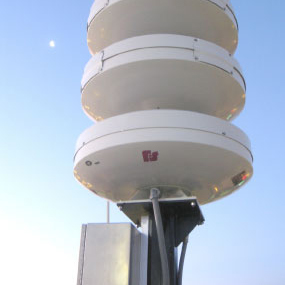 Services are available to interact with these ‘smart objects’ over the Internet, query and change their state and any information associated with them, taking into account security and privacy issues. Smart systems will fundamentally alter the economic equations of the telecom and IT world, as well as spawn whole new enterprises and enable radical new ancillary technologies. Smart systems certainly represent a conceptual change. So far IT has been used to automate and optimise processes within firms and other organisations as well as the dealings between them.
Services are available to interact with these ‘smart objects’ over the Internet, query and change their state and any information associated with them, taking into account security and privacy issues. Smart systems will fundamentally alter the economic equations of the telecom and IT world, as well as spawn whole new enterprises and enable radical new ancillary technologies. Smart systems certainly represent a conceptual change. So far IT has been used to automate and optimise processes within firms and other organisations as well as the dealings between them.
Now it will increasingly be used to automate and optimise interactions with the physical environment. And let us not forget that many countries have already made smart systems a priority of industrial policy. The Internet of Things (another term for smart systems) is central to the European Union’s ‘Digital Agenda’ under strong guidance from Commissioner, Neelie Kroes.
World Smart Capital initiative
The World Smart Capital concept provides the research and analysis that will inform strategy, but crucially also bring the mindset and the ability to make things happen in the cities.
The vision of the World Smart Capital concept is to identify and share successful urban innovations across cities worldwide while demonstrating how governments, industries, educational institutions and citizens are working individually and in concert to revitalize and invent their urban environment with help from urban technologies, ICT and smart systems.
Indeed, concept is to promote and encourage the use of smart systems to further the economic and social development of the world’s cities. The World Smart Capital designation aims to focus on the broader essence of the impact of smart systems on urban spaces, urban development, transport, energy, economies and citizens.
Urban strategies
The designation provides a distinctive opportunity for cities to showcase their accomplishments in the application of smart systems, as well as highlight successes in smart urban strategies and developments.
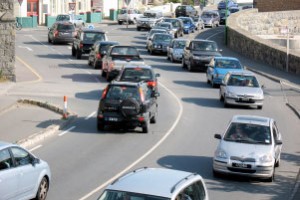 The designation is conferred to cities that exhibit exceptional progress addressing both the applications of smart systems and its social influence and implications. These cities demonstrate how their government, industries, educational institutions, and citizens are working individually and in concert to revitalise and reinvent their urban environment. Indeed, the vision is to promote and encourage the use of smart systems to further the economic and social development of the world’s cities.
The designation is conferred to cities that exhibit exceptional progress addressing both the applications of smart systems and its social influence and implications. These cities demonstrate how their government, industries, educational institutions, and citizens are working individually and in concert to revitalise and reinvent their urban environment. Indeed, the vision is to promote and encourage the use of smart systems to further the economic and social development of the world’s cities.
But the World Smart Capital concept can also help cities better position themselves, gives them a better image and increased visibility, attracts investors and creative people, improves their quality of life, and will set up new public-private partnerships.
Amsterdam pilots smart capital concept
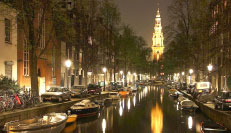 With the intend to help identify and develop a project of international appeal that would leverage global collaboration and advocacy for urban development and the application of ICT and smart systems in particular, the Amsterdam Metropolitan Area is the pilot city to develop the World Smart Capital concept for the years 2012 and 2013. With help of all relevant educational institutions, national and regional governments, and the industry, the Amsterdam Metropolitan Area states it will do its utmost to execute the implementation of a two year long program of projects and events – subsequently contributing to the development of the concept.
With the intend to help identify and develop a project of international appeal that would leverage global collaboration and advocacy for urban development and the application of ICT and smart systems in particular, the Amsterdam Metropolitan Area is the pilot city to develop the World Smart Capital concept for the years 2012 and 2013. With help of all relevant educational institutions, national and regional governments, and the industry, the Amsterdam Metropolitan Area states it will do its utmost to execute the implementation of a two year long program of projects and events – subsequently contributing to the development of the concept.
The public (cities, local governments), academic and private (corporations) sectors will join the World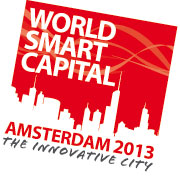 Smart Capital Initiative’s Constitutional Convention in Amsterdam, in June 2012 to shape an agenda of pilot projects in urban areas as testing grounds for the newest technologies to help cities develop their urban environment and infrastructures.
Smart Capital Initiative’s Constitutional Convention in Amsterdam, in June 2012 to shape an agenda of pilot projects in urban areas as testing grounds for the newest technologies to help cities develop their urban environment and infrastructures.
This international gathering will bring together representatives of corporations, cities, educational institutions, universities, research institutions, local and regional governments. Working and task groups will assemble experts from the various stakeholders to work on clarifying issues, formulating strategies and developing action plans.

